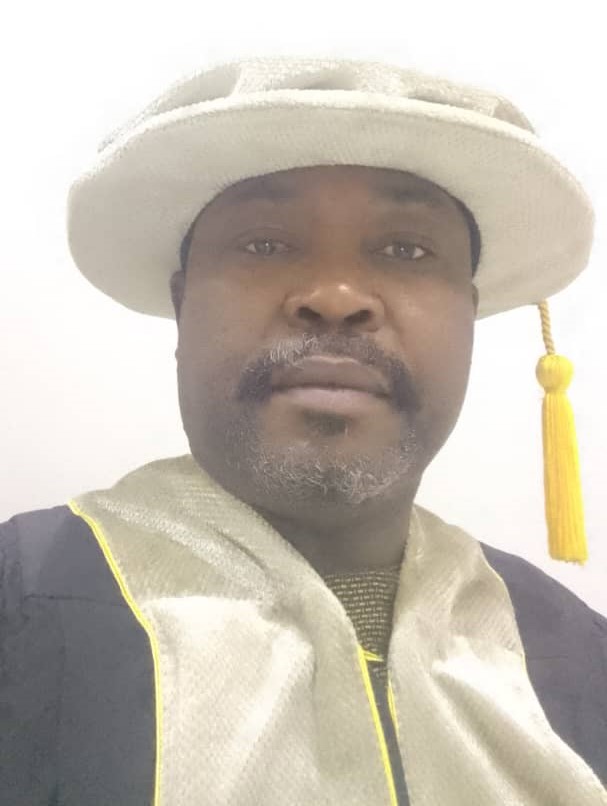In a career that has taken him from newsroom desks in Nigeria to academic podiums in Europe, Professor Austin Nosike has spent more than three decades navigating the interconnected worlds of education, policy, and development.
Now, the seasoned academic is stepping into one of his most influential roles yet -President of the African Institute of Management, Technology and Development Studies (AIMTDS), a Kigali-based think tank with a footprint that stretches beyond borders.
The governing board of AIMTDS confirmed his appointment in a statement signed by its secretary, describing Nosike as an “erudite and seasoned professor of public finance and business policy” with an established record in higher education leadership.
As president of AIMTDS, Prof. Nosike will guide the institute’s academic growth, expand partnerships, mobilize resources, and oversee research administration. He also joins its governing council, where strategic decisions on policy engagement and institutional development are made.
From Development Africa Consortium to AIMTDS
Founded in 1998 as the Development Africa Consortium by African researchers and experts, AIMTDS has evolved into one of the continent’s leading independent research and training institutions.
It collaborates with universities, governments, NGOs, and academic centers around the world, delivering professional training, conducting evidence-based research, and providing policy advisory services.
The institute has hosted international conferences, coordinated joint research projects, and built a broad network of scholars, policy-makers, journalists, and practitioners. Since it inception, AIMTDS has emerged as a reference point for development thinking in Africa, publishing books and papers that are distributed globally.
In Nosike’s view, AIMTDS is not just a research body, it is a bridge between academia and real-world policy-making. “The institute’s mission aligns perfectly with my own commitment to using scholarship as a tool for societal transformation,” he told InfomediaNG.
A Cross-Continental Career
Nosike’s academic career is both expansive and international. He is currently Deputy Vice Chancellor for Academics and Research at the International University of Equator in Burundi and Head of Partnerships and Linkages at Ugandan Pentecostal University.
His past appointments include Deputy Vice Chancellor at Copperstone University in Zambia; Dean of the School of Postgraduate Studies at the University of Kigali; Visiting Professor at Kigali Independent University; Professor of Business & Economics and Director of Research and Innovations at Metropolitan International University in Uganda; and Visiting Scholar of Globalization and Development at Universidad del País Vasco in Spain.
He has also served at numerous Nigerian institutions, including the University of Mkar, Kaduna Polytechnic, the Nigerian Defence Academy, and Alvan Ikoku College of Education, as well as universities in Rwanda, Uganda, Italy, and Poland.
In 2024, the Namibian government’s National Council for Higher Education tapped him to chair a high-profile university audit panel, where he showcased his expertise in academic quality assurance.
Beyond the Lecture Hall
Nosike’s journey began far from the administrative boardrooms he now occupies. He first trained as a journalist, later becoming a human rights activist and public relations professional before committing fully to academia. Those early experiences helped him develop the communication skills and policy awareness that have become hallmarks of his leadership.
He has organized more than 100 international conferences, seminars, and workshops, participated in over 30 research programs, and published more than 150 scholarly works. His areas of research range from globalization and public policy to environmental management, finance, and human rights.
His professional affiliations are extensive: he is a Chartered Administrator, a Fellow of the Board of Quality Standards, the Institute of Policy Management Development, and the Chartered Institute of Professionals, among others.
Awards and Recognition
Nosike’s career is decorated with grants, fellowships, and honors. He won first prize in the 1992 International Essay Competition for Nigerian University Students, organized by the Forum for the Advancement of Nigeria in Philadelphia. He is also a recipient of the West Coast University Research Award, fellowships from Central European University and the Polish Ministry of Foreign Affairs, and an International Institute of Human Rights Fellowship.
He has represented Nigeria and Africa at high-level gatherings, including the Pan African Summit on Water, African Union Assembly sessions, and United Nations Economic Commission for Africa consultations.
Education Without Borders
His academic background is as international as his career. After graduating with distinction from Anambra State College of Education and earning a BSc with upper second-class honors from the University of Nigeria, he pursued graduate studies at Imo State University, Rivers State University of Science and Technology, the Centre for Social Studies in Warsaw, the University of Lancaster in the UK, Central European University in Budapest, and the International Institute for Human Rights in Strasbourg.
Nosike holds a master’s degree in management from Universidad Católica de Murcia in Spain, a PhD in economics from Universidad Central de Nicaragua, an MSc in accounting and finance, and a doctorate in business administration from Universidad Azteca in Mexico.
Looking Forward
As he takes the reins at AIMTDS, Nosike is expected to deepen the institute’s engagement with pressing African development issues, from economic transformation and governance reform to environmental sustainability.
Colleagues describe him as both a rigorous academic and a pragmatic leader, qualities they believe will help AIMTDS continue its role as a hub for knowledge generation and policy innovation.
For Nosike, the challenge ahead is clear: to leverage his cross-border experience, global networks, and scholarly expertise to ensure the institute remains a driver of evidence-based policy-making in Africa. And, as he has often said, to keep the focus on “linking research to real solutions for African communities.”


